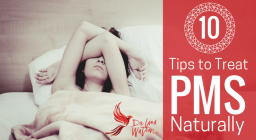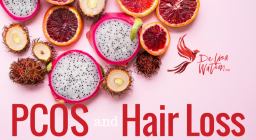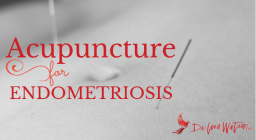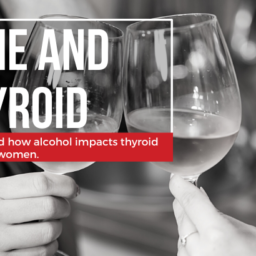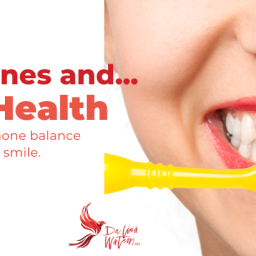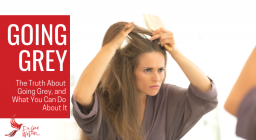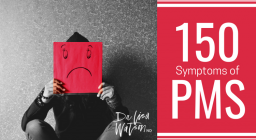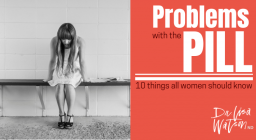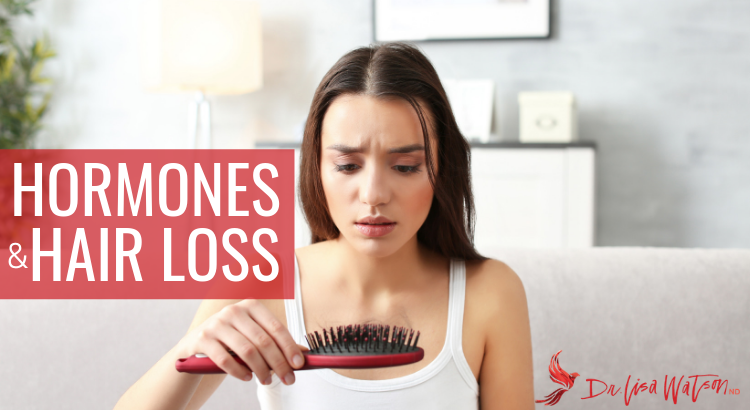
One of my favourite/ least favourite stories to tell is how I became a Naturopathic Doctor. I was in my late teens, finishing my last year of high school, when I began losing my hair. What was happening to my thick full hair?? It was falling out more and more, but my doctors assured me I “still had lots of hair”, as if that was what mattered. I was not taken seriously – whether because I was a teen girl, or because my doctors didn’t see how much hair I was losing every day, it didn’t matter. My hair loss was destroying my self confidence and I was convinced it meant something was wrong.
A Familiar Story
Of course, it did mean something was wrong. For myself, it was a combination of low iron (which I talk about as a root cause of hair loss) and significant stress. And this loss of trust in the conventional medical community led me to change my plans from becoming a Medical Doctor to becoming a Naturopathic Doctor.
I’d like to think my story is unique. But I’ve come to see that it is not. Many women (and teen girls) come to my practice with similar stories. Being dismissed and told that their hair loss is not a significant symptom. Being told that it is normal. Or having little to no testing done to identify the underlying cause of hair loss.
I may not be able to help all of the millions of women who experience hair loss, but I hope by sharing my story, and some of my expertise, that I may be able to impact some.
Hormones and Hair Loss
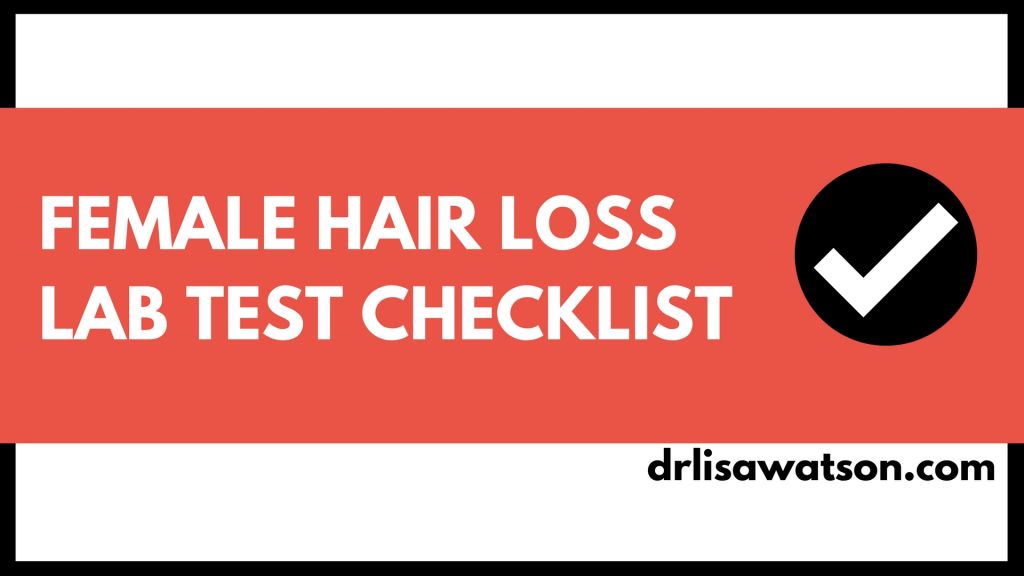
Hair loss can happen to a woman at any age, and while it may be more common as we get older, that doesn’t mean that it is a normal occurrence at any age. Keep in mind – common is not the same as normal! In this article I’m going to focus on the hormonal causes of hair loss, some of the most common causes I see in my practice. In order to properly diagnose your hair loss, be sure to use the Hair Loss Lab Testing Checklist and get to the root cause.
Thyroid Imbalances
Your thyroid is a small but mighty gland located in your neck, near your voice box. The primary role of the thyroid is to encourage energy production by the body. When the thyroid isn’t functioning optimally, there can be consequences throughout the body, including the hair. Hair loss can occur with too little thyroid hormone (hypothyroidism) or too much (hyperthyroidism). A condition known as alopecia areata is also linked to autoimmune thyroid disease, or Hashimoto’s thyroiditis.
Conventional testing for thyroid function is not always adequate to identify an underlying thyroid condition. If you suspect your thyroid may be contributing to your hair loss, get a comprehensive thyroid panel completed with your Naturopathic Doctor, functional medicine doctor or MD. This test will look beyond TSH and test for free T3, free T4 and thyroid antibodies.
Testosterone Overload
One of the most common causes of hair loss in women and men, high levels of testosterone can lead to hair loss, especially at the frontal hairline and the top of the head. While typically thought of as a man’s hormone, women produce testosterone as well. The real issue isn’t testosterone specifically, but a metabolite of testosterone called dihydrotestosterone, or DHT. This form of testosterone is much more powerful than regular testosterone and binds strongly to hair follicles on the scalp, face, back and chest – leading to hair loss on the scalp, and acne on the face, back and chest.
Many women can have lab testing for testosterone that looks normal, but DHT levels may still be high. It is important to have both these hormones tested, especially if you have other signs of high androgens such as acne or irregular periods, or have been diagnosed with PCOS.
Low Progesterone
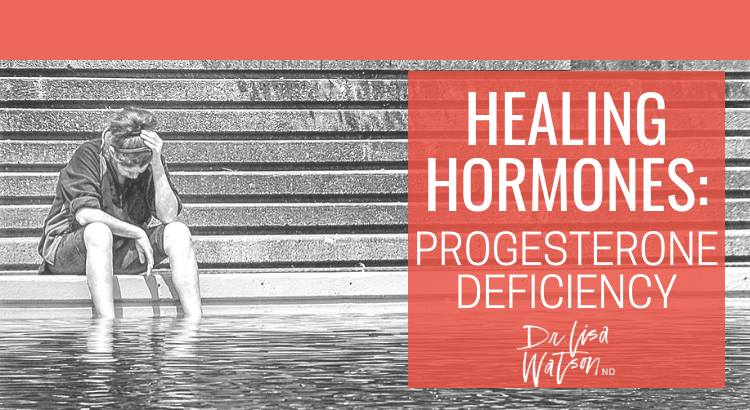
Progesterone is a damn important hormone. The natural balancer to both estrogen and testosterone, many hormonal imbalances are a result of low progesterone. Progesterone is able to block testosterone from accessing receptors, preventing it from leading to hair loss. Progesterone is also the reason women’s hair grows so thick and healthy during pregnancy!
The three times in a woman’s life when low progesterone are most common are:
- If she is using the birth control pill. On the pill you do not ovulate, and do not produce progesterone (the synthetic progestins in the pill are not the same thing)
- If she has PCOS and does not ovulate
- As she ages. Progesterone production drops through your 30s and many women in their 40s are not making enough to balance their estrogen and testosterone levels. Women in menopause make hardly any progesterone at all.
Stress is another common cause of progesterone deficiency, as the body will steal all the available progesterone to make cortisol, our body’s main stress hormone.
Insulin and Blood Sugar Imbalances
No hormone acts on the body in isolation. They all influence each other. Insulin, the hormone produced to encourage our cells to take up sugar and regulate the levels of sugar in our blood, can have an impact on hair loss when it is imbalanced.
When your diet is too high in refined or processed carbohydrates, your cells can become resistant to insulin, causing higher circulating levels of blood sugar. When this occurs your ovaries can become resistant as well, an imbalance which disrupts healthy ovulation and causes your ovaries to produce more testosterone and DHT.
Stress and Cortisol
You may pull your hair out when you are stressed, or stress may cause it to fall out. Stress can cause increased or decreased cortisol levels, both of which can contribute to hair loss. Excessive stress can also cause your hair to enter its telogen, or hair fall phase, prematurely. This will often result in hair loss 2-3 months after the stressful event.
High cortisol will also deplete progesterone and allow for more testosterone to bind to hair follicles, which can further exacerbate hair loss. If you have significant stress, consider what changes need to be made to help lessen your stress, and explore whether cortisol testing may help to reverse and resolve your hair loss.
Stopping Hair Loss
Understanding the hormonal causes of hair loss for women is just the first step. To get to the root cause of your hair loss comprehensive testing is almost always necessary. The problem is that many doctors don’t take hair loss seriously (I know from my personal experience!). You may need to pay out of pocket to get the level of testing that you need, but in the end, that knowledge can help you put an end to your hair loss and allow you to regain not only your hair, but balance your hormones and give you your quality of life back.
Selected References
Ohnemus U, Uenalan M, Inzunza J, Gustafsson JA, Paus R. The hair follicle as an estrogen target and source. Endoc Rev. 206;27(6):677-706. https://www.ncbi.nlm.nih.gov/pubmed/16877675
Ohnemus U, Uenalan M, Inzunza J, Gustafsson JA, Paus R. The hair follicle as an estrogen target and source. Endoc Rev. 206;27(6):677-706. https://www.ncbi.nlm.nih.gov/pubmed/16877675
Randall VA. Androgens and hair growth. Dermatol Ther. 2008;21(5):314-28. https://www.ncbi.nlm.nih.gov/pubmed/18844710
Randall VA. Hormonal regulation of hair follicles exhibits a biological paradox. Semin Cell Dev Biol. 2007;18(2):274-85. https://www.ncbi.nlm.nih.gov/pubmed/17379547
Levy LL, Emer JJ. Female pattern alopecia: current perspectives. Int J Womens Health. 2013;5:541-556. https://www.ncbi.nlm.nih.gov/pmc/articles/PMC3769411/
Disclaimer
The advice provided in this article is for informational purposes only. It is meant to augment and not replace consultation with a licensed health care provider. Consultation with a Naturopathic Doctor or other primary care provider is recommended for anyone suffering from a health problem.



